icon
password
Multi-select
tags
ID
type
status
slug
summary
category
date
Author
URL
How did Golden Arawana grow from selling a small barrel of cooking oil to one of the world's top three grain and oil groups with a market value of over RMB 330 billion in 30 years?
Arowana is an ancient freshwater fish native to rivers and lakes in Malaysia and Sumatra, Indonesia. As far back as 3.5 million years ago, in the Carboniferous period, Arowana belonging to the family Osteoglossidae began to exist.
Because of its large round scales glittering, beard on the mouth, long life, elegant appearance, resembling the Chinese totem “Chinese dragon”, so the local Chinese will give it a rather nice name, “dragon fish”.
The arowana has become one of the most valuable ornamental fish because of its metallic, armor-like scales, bright colors and imposing demeanor. Among them, those with gold glitter scales are called “golden arowana.”
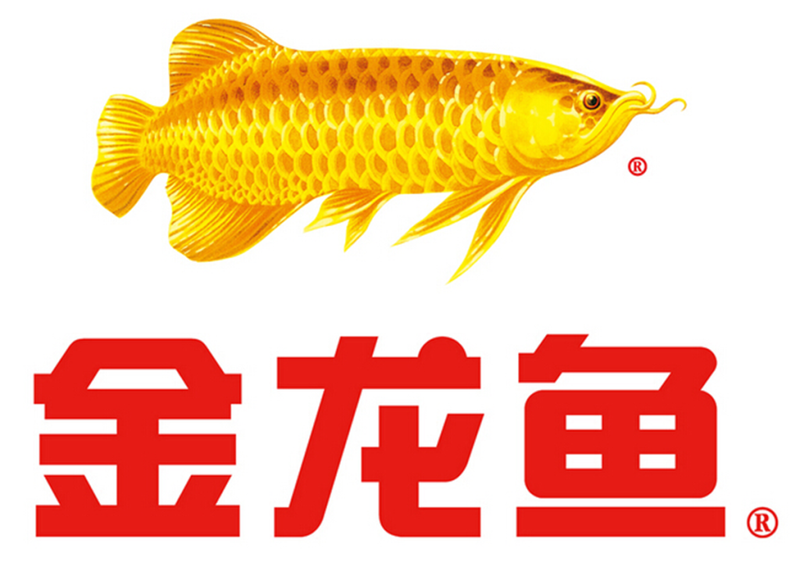
In China, another “Golden Arawana” from Malaysia has spent more than 30 years to build a huge grain and oil empire with a market value of more than 330 billion RMB. This company is Yihai Kerry Arawana Holdings Co., Ltd (YKA), aka, “Golden Arawana” in Chinese due to its logo. Yes indeed, you may notice that it is called Arawana, not arowana.
As an old Chinese proverb goes, “Chai, Mi, You, Yan, Jiang, Cu, Cha” which refers to the meaning of “firewood, rice, oil, salt, soy sauce, vinegar and tea”, the necessities of daily life.
This “arowana” of the cooking oil industry has not only occupied nearly half of China’s cooking oil market but its rice, flour, and condiments have also taken their place in the market and are on the tables of thousands of Chinese people.
This time let’s talk about how this company developed from its very begining to such a giant.
The first birth of the brand
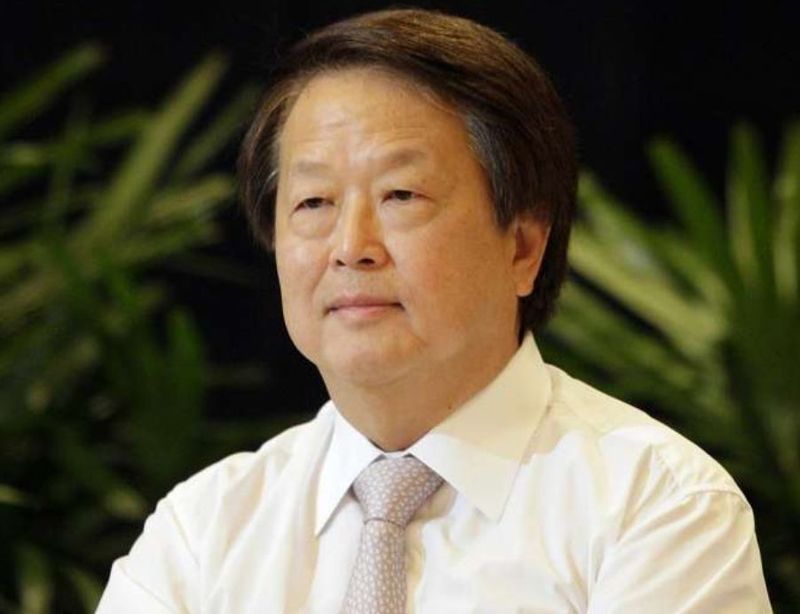
In 1949, the founder of YKA, Kuok KhoonHong, was born in a Malaysian Chinese family.The Kuok family is prosperous and KhoonHong’s father, Kuok HeRui, has 21 brothers. They co-operation run Kuok Brothers Ltd. that specializes in rice, noodles, oil, and other grain businesses.
Kuok KhoonHong’s uncle, Robert Kuok, shifted his business focus to the sugar industry since 1955, developing vigorously in spot, futures, plantation, and sugar production. He became the “King of Sugar in Malaysia”, “King of Sugar in Asia” and “King of Sugar in the World”, and accumulated a strong capital.
In 1962, Robert Kuok used the money he earned in the sugar industry to start businesses such as cooking oil companies, flour mills, and even achieved great success in shipping, finance, and hotels, forming the huge KuokGroup industry cluster.
In 1973, as a nephew, Kuok KhoonHong graduated from the University of Singapore and naturally joined Kuok’s Federal Group, starting with the flour business.Under the guidance of his uncle, he learnt quickly.
KhoonHong bought high-quality soybeans, wheat, corn, and other crops from the United States, Canada, and Australia at low prices, processing them into soybean oil, flour, and feed, and then selling them to the rest of the world.
After more than ten years of study and accumulation, KhoonHong has made a name in the cooking oil and grain industry.
In 1986, he was going to register a trademark for the cooking oil he produced.Inspired by the golden arowana kept in his big fish tank, the trademark of “Golden Arawana” was born, and he started to sell small packages of “Golden Dragon Fish” oil in Malaysia.
The growth history of the YKA
China hardly import cooking oil until the late 1980s,the reform and opening up, but the imports were soybean oil, palm oil, canola oil, etc., packed in bulk or large iron drums.
This oil has a lot of impurities, a lot of smoke, and cloudy colors. The lack of small packages of cooking oils that meet international health standards makes it difficult to meet the Chinese people’s demand for high-quality consumer goods.
In such background, Kuok KhoonHong entered the grain and oil market in mainland China as a foreign investor as the representative of Kerry Grain and Oil Corporation. He invested with COFCO, the largest grain, oil and food enterprise in China, to establish Hainan Oil Co., Ltd. in Shekou, Shenzhen.
January 8, 1990, as China’s first large-scale modern oil refinery, Hainan Oil officially began production, and to refine imported soybean oil as the main breakthrough, test the market response.
The following year, the first batch of small packaged “Golden Arawana” blended oil was officially launched and became the focus of the Chinese people’s attention.
Through market research, Kuok KhoonHong found that Chinese enterprises and institutions have the habit of distributing rice, flour, oil, and other groceries during the New Year and other traditional festivals. Tthe small package of Golden Arawana oil is portable and beautiful, quite suitable for such purpose. So the company began to focus on this market, promoting cooking oil products to various companies.
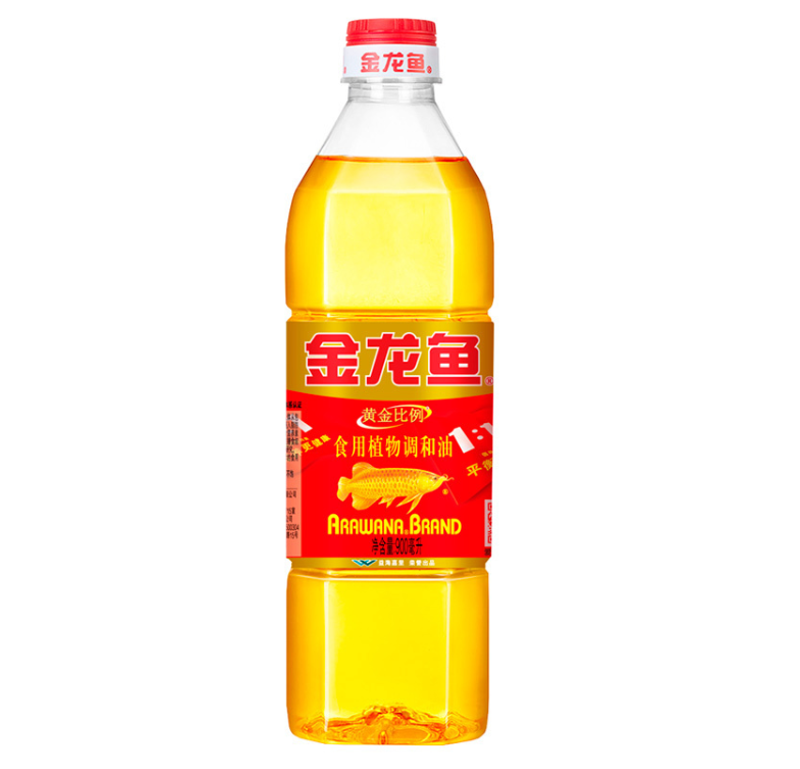
In one year, Kuok KhoonHong successfully opened up the Chinese market with 3,000 tons of packaged oil sales.It expanded rapidly in the Chinese grain and oil market and built eight additional refining and filling bases in Shenzhen, Qingdao, Xi’an, Chengdu, Xiamen, Shanghai, Guangxi, and Liaoning.
In the same year, Kuok KhoonHong proposed to set up his own business and founded Wilmar Trading Pte. Ltd. in Singapore. After some court cases, the brand “Golden Arawa” was left in uncle Guo Robert Kuok’s Kerry Grain and Oil Corporation.
In 1993, China’s grain and oil raw material prices skyrocketed, the small packaged oil of Golden Arawana expanded sales with the advantage of good quality and low price. At the same time, the exclusive agency system was introduced. Its agent could not represent similar products and had to commit to a fixed annual sales volume.
Although some Chinese companies were also entering the small packaged cooking oil market at this time, Golden Arawana’s market share had increased to 20% in two years, making it the number one cooking oil brand in China.
In 1996, Golden Arawana was advertised on CCTV, the largest TV channel in China. With the powerful influence of CCTV, it has gained wide attention from Chinese consumers. It became the first Chinese cooking oil company to establish a brand concept and spread its image.
Steady growth
After a decade of efforts, the concept of small packaged cooking oil has penetrated the hearts of Chinese people.The Golden Arawana even invested a lot of resources to start the research and development of the second generation of blended oil in 2000.
In 2002, the new “1:1:1 Blended Oil” was launched. The product advocates the health concept of dietary fatty acid balance, promoting the concept of Chinese consumers from “safe” to “nutritious and healthy” change. Its formula has also received a national invention patent. Soon the second generation of Golden Arawana blended oil became the best-selling product in the Chinese cooking oil market, with annual sales exceeding 1,000,000 tons.
In 2004, the company began to lay out the market in northern China and began to compete with the peanut oil brand “Luhua”, which was ranked third in China in the field of small packaged cooking oil. After that, it launched the peanut oil brand “Hujihua” as a joint venture with Qingdao Vegetable Oil Company, gained the advantage and kept its No.1 position in China’s small package cooking oil industry.
In 2005, the Golden Arawana brand soybean oil and canola oil products won the title of “China Famous Brand Products”.
In 2006, it became the main sponsor of China’s national women’s volleyball team.
In the same year, Kuok KhoonHong’s Wilmar Trading Pte. Ltd was shell listed in Singapore, and the shell company was renamed Wilmar International Ltd.Robert Kuok and Kuok KhoonHong, uncle and nephew, also decided to reunite. Robert decided to consolidate the grain and oil business in his hands to KhoonHong to secure a dominant position in the Chinese grain and oil market by achieving a scale operation.
On December 14 of the same year, Wilmar International Ltd acquired KuokGroup’s palm plantation, cooking oil, and other related businesses for approximately $2.7 billion.The “Golden Arawana” brand returned to the hands of its creator, Guo Kongfeng, once again.
As a result of the merger and restructuring, Wilmar International’s land under oil palm cultivation increased from 210,000 hectares to 573,400 hectares, refining a quarter of the world’s output of palm oil.Its cooking oil crude and refining plants reach 24, with an annual soybean crushing capacity of 10 million tons and an annual refining capacity of more than 4 million tons of various oils and fats. It also owns 5 flour mills and 2 rice mills.
It became the largest grain and oil conglomerate in the Chinese market.
In 2008, Gold Arawana packaged cooking oil occupied nearly 50% of the Chinese cooking oil market and became the exclusive cooking oil supplier of the 2008 Olympic Games in Beijing.
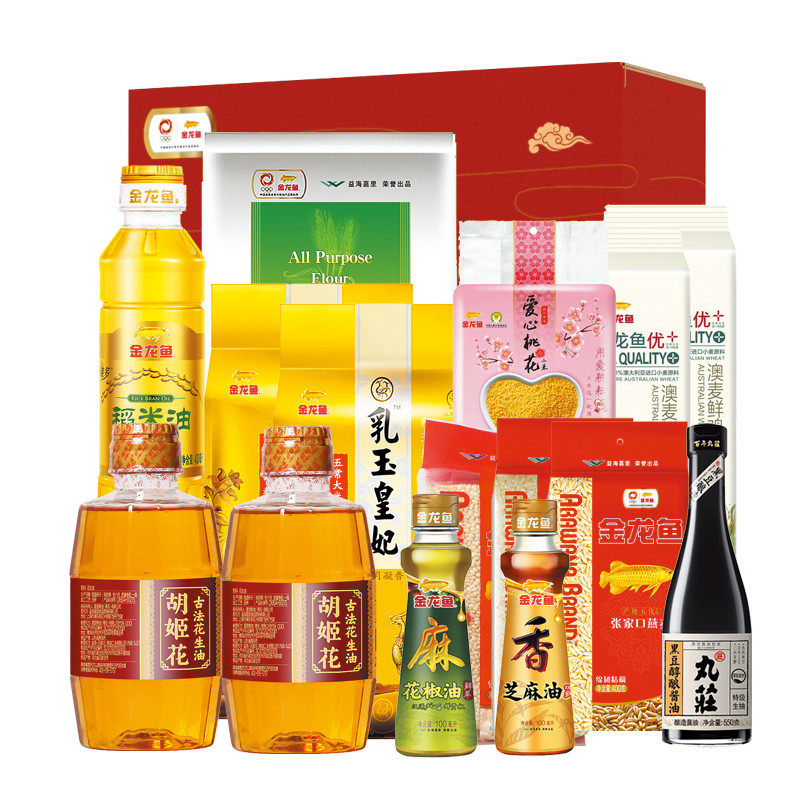
After occupying half of China’s cooking oil market, Golden Arawana began to broaden its development to rice and noodles, and the company started to increase its investment. With the market advantage, the company`s flour, seasoning, miscellaneous grains, and other products under the same brand also began to seize the market.
Made a big splash
In ancient Chinese myths and legends, the Yellow River carp goes upstream with the waterfall and evolves into a dragon when it crosses the Dragon Gate. Coincidentally or not, the golden arawana cannot avoid these setbacks when it wants to take a step closer.
After completing the layout of each product segment, Golden Arawana finally put IPO on the agenda, but the execution of this plan did not go smoothly.
In 2009, the company wanted to list in mainland China. However, as an overseas Chinese company, there were great difficulties in listing policies and procedures, so Wilmar International planned to split 30% of its China business and apply for a listing in Hong Kong, China. But due to the turmoil in Hong Kong’s financial markets at the time, the expected offering price could not meet expectations, so the listing pulled down.
In 2012, Golden Arawana’s parent company, Wilmar International, was ranked 223rd on Fortune Magazine’s list of the world’s top 500 companies, with nearly 100 places risen from the previous year. It successfully ranked among the top three global grain and oil groups and topped Fortune magazine’s list of the world’s most admired companies in the food production industry.
In 2014, Wilmar International was ranked 239th on the Fortune Global 500, marking the third consecutive year it has been ranked in the top three in the global food production industry.
In 2017, Wilmar International announced the spin-off of its China business and made several internal restructuring, attempts to list on the Shanghai Securities Exchange. However, this IPO still failed.
In February 2019, Wilmar International officially changed the name of its operating entity in China, YiHai Kerry Investment Company Ltd, to Yihai Kerry Arawana Holdings Co., Ltd (YKA). At that time, it had 161 domestic holding subsidiaries in China, 18 overseas holding subsidiaries, 22 major shareholding companies, and 42 branches, with more than 29,000 employees. YKA sits firmly at the top of China’s cooking oil industry and is one of the top four global producers of agricultural products.
In July 2019, YKA switched to the Shenzhen Stock Exchange Growth Enterprise Market (GEM), and finally successfully listed and traded in October 2020. It opened at RMB 48.96 yuan per share, up 90.51%, with a total market capitalization of over RMB 260 billion, making it the third-largest company in the GEM in terms of total market capitalization.
Since then, Golden Arawana has also officially become a domestic listed company in China and has laid the foundation for further expansion of its business in China to follow.
Looking to the futuret
In 2020, the total annual revenue of YKA up to RMB 194.9 billion, and the total profit is over RMB 6 billion. In the first three quarters of 2021, the operating revenue of the company was RMB 162.725 billion, an increase of 16.24% year-on-year.
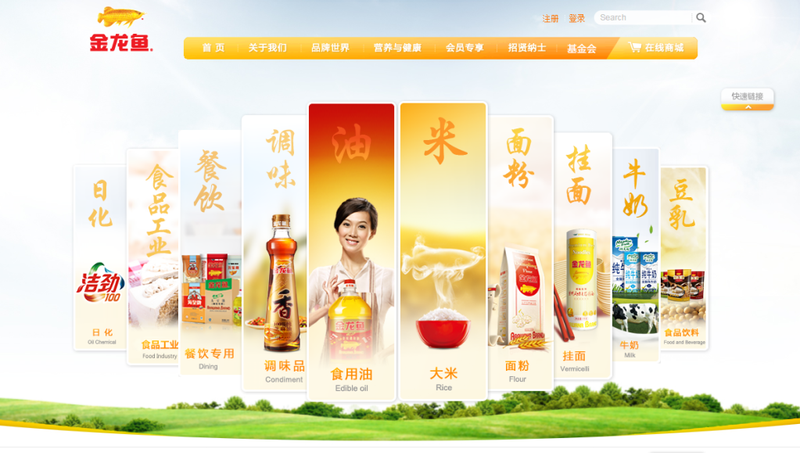
So far, YKA has covered many fields such as oil, rice, flour, condiments, milk, and oil chemical. It owns famous brands such as “Golden Arawana” ” Hujihua” “Olivia” and “Xiangmanyuan”, and its latest market value of the company has reached RMB 331.7 billion.
Gold Arawana did not stop there either. Since 2020, it has launched a series of “zero trans fatty acids” cooking oils, local special flavor cooking oils, local special rice, and other new products. The company is promoting internal product mix optimization along with advertising and marketing to achieve gross margin growth.
The company also attaches great importance to strategic layout and has established an efficient and synergistic production network, hoping to achieve economies of scale and maximize efficiency through a large integrated enterprise group. As reported, the central kitchen of Golden Arawana will be completed first in four cities, namely Langfang, Chongqing, Xi’an and Hangzhou, Zhejiang, by the end of 2021, and the expansion will start next year.
Perhaps the trait of being good at finding and grasping opportunities makes Golden Arawana stand out in China’s grain and oil industry, and have greater space for long-term growth.
- Author:NotionNext
- URL:https://pandayoo.com/2021/12/10/the-history-of-the-development-of-yihai-kerry-arawanas-grain-and-oil-empire
- Copyright:All articles in this blog, except for special statements, adopt BY-NC-SA agreement. Please indicate the source!